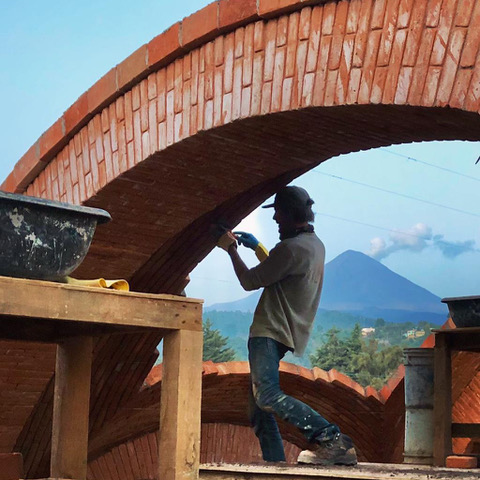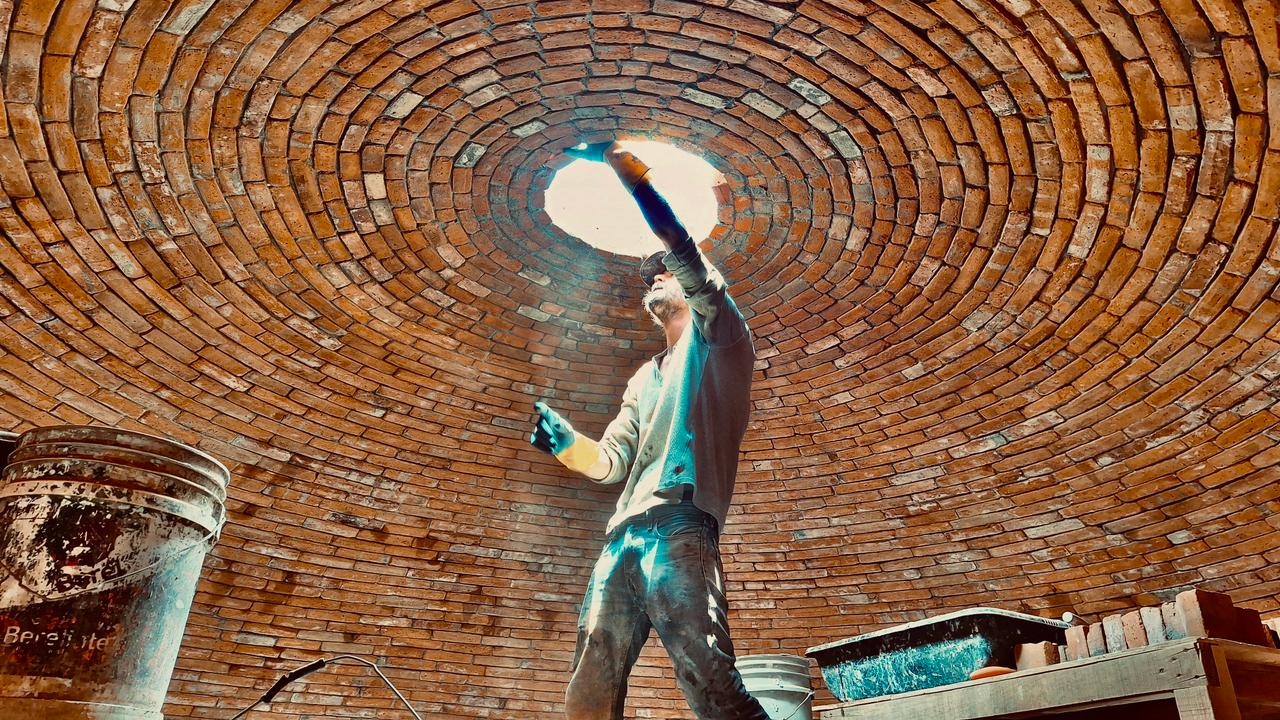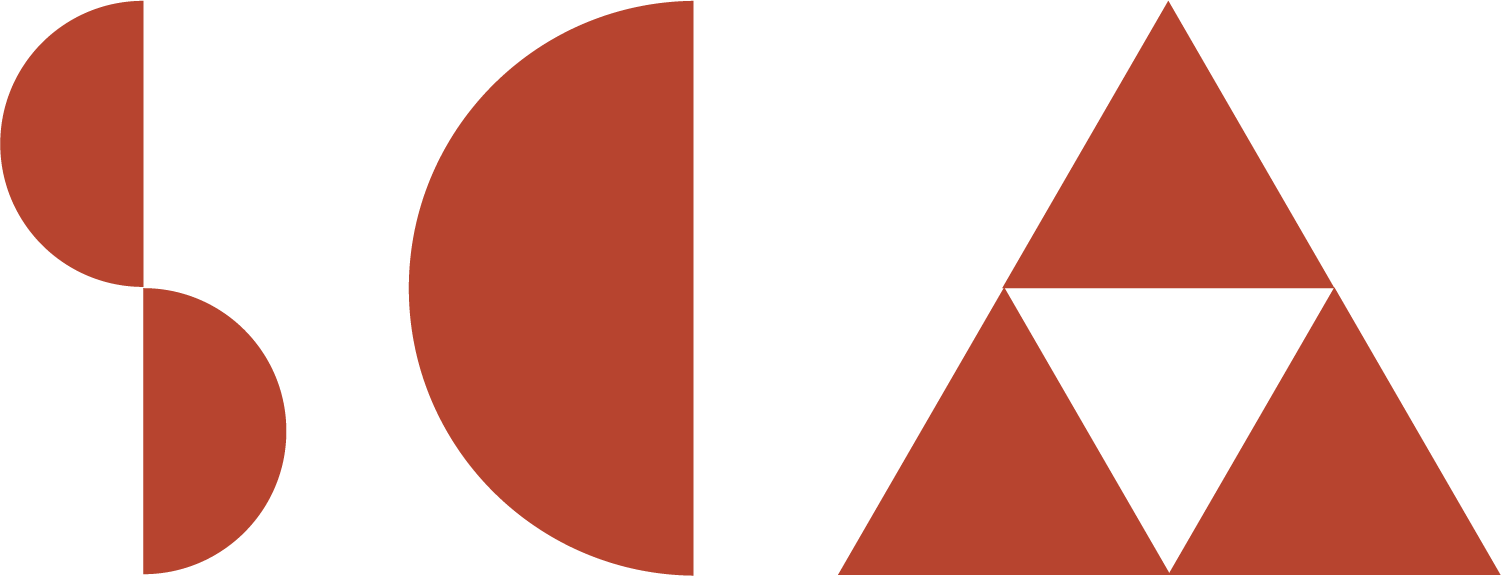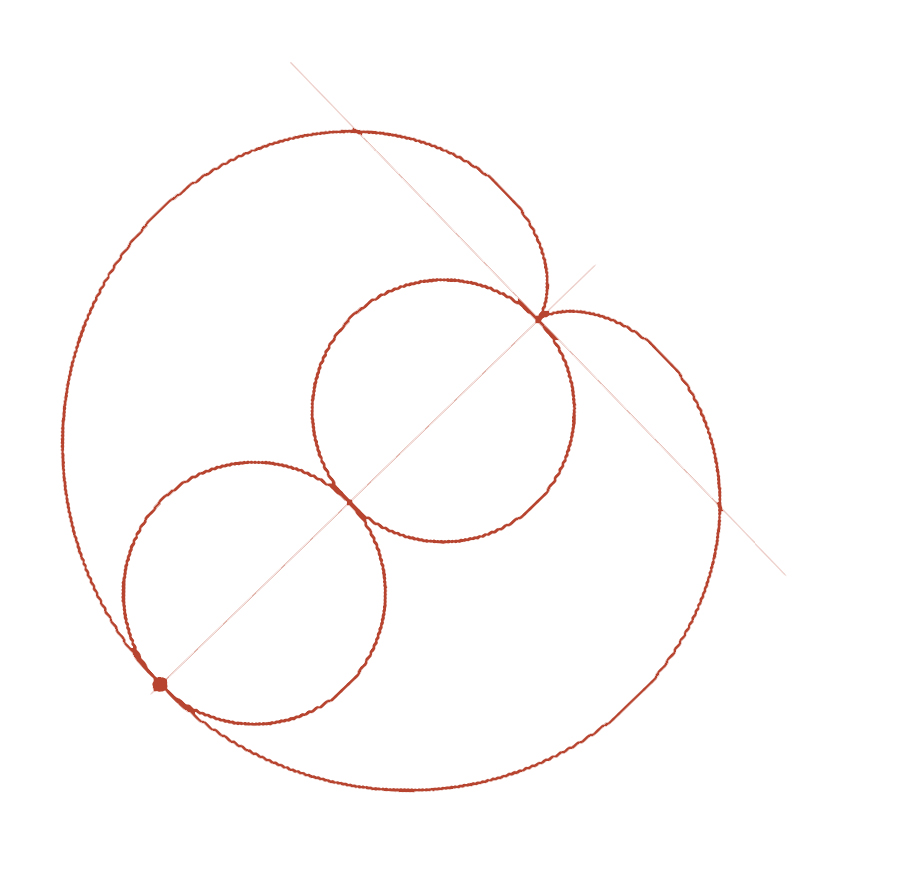Vault Building with Bóvedero James Anthony


This November renowned bóvedero James Anthony will be teaching a 4 day workshop on the art of masonry vaults as we come together to build a bóveda to shelter our library.
An expert with over two decades of experience building arches, vaults, and domes, James typically works without any formwork to build self-supporting structures from fired and unfired brick. Bóvedas or vaults are an extremely efficient means of enclosing space, relying on innate structural curvature rather than precious tensile materials like steel and wood. Vaults and domes are essential to the architectural tradition of the Mediterranean, Africa, and the Middle East. Through the Spanish the technique came to Mexico where the knowledge of Bóvedas is still alive. James Anthony is based in Morelia, but has built vaults and domes on both sides of the river, throughout the Americas. We are honored to have the opportunity to learn this ancient art and look forward to welcoming James to SCA this Fall.
At the School of Constructive Arts we combine hands-on education with detailed instruction to empower people to build resilient homes and communities that are healthy for people and the environment. Our goal is to offer robust classroom education in parallel to hands-on experience in a range of construction methodologies. In addition to the expertise in vault building shared by James Anthony, we may cover compressed earth block construction and other regenerative design topics.
Take your education off-line and off-grid. Learn the ancient art and cutting edge science of building with the earth.



Workshop Cost
Standard Price
Reduced Price with Financial Aid
We are holding 4 spots at a reduced price for individuals who who would like to attend but cannot afford to. Please submit an application and fill out the financial aid section.What's Included?
Breakfast, lunch, and dinner will be provided for the duration of the workshop. There are other food options available at the Terlingua Ranch Lodge and in the Terlingua Ghost Town. We will fire up our earthen oven for a wood-fired pizza dinner celebration on the last day of the workshop, Tuesday November 26th. A detailed daily schedule will be posted soon.
Our mission is to provide high-quality education at an affordable price. The workshop price covers our direct costs. If you are able, please consider an additional donation to support our future programs and allow us to provide scholarships for individuals who would otherwise not be able to attend.
Who should attend?
Anyone interested in learning the ancient art of building arches, vaults, and domes and building in a healthier, more humane, and more efficient way. All skill levels are welcome. We recommended participants be 18+ or 12+ if accompanied by an adult. The course is well suited to seasoned builders, beginners, students, professionals, homeowners, and aspiring homeowners alike.


Location and Transportation
School of Constructive Arts Main Campus
1316 Snake Road
Alpine, TX 79830
The School of Constructive Arts is based in the Big Bend Region of West Texas, in an International Biosphere Reserve, between Big Bend National and State Parks, and within the largest dark sky reserve in the world. This remote location requires some planning to get to. Our campus is just off the Terlingua Ranch Road, 60 miles south of Alpine. The closest airports are in Midland/Odessa (3.5 hours by car) and El Paso (4.5 hours). There is an Amtrak station in Alpine, TX. It is recommended to have a vehicle during the course of the week, though carpooling can be coordinated. If you are willing to ride share from the airport please let us know. Pick-ups can be arranged in Alpine and Marfa for arrival and departure, but not daily commutes.
Accommodations
We have reserved a number of cabins for workshop participants at the Terlingua Ranch Lodge (13 miles from SCA). Rooms each have two queen-size beds and a private bath. Please specify if you would like to book a room to yourself or share a room with another attendee. Campsites with hookups are also available. There is a restaurant (Bad Rabbit Cafe), laundry, showers, and a swimming pool (seasonal) at the Terlingua Ranch Lodge. Cabins are limited and first come first serve, so availability is not guaranteed. Contact us ASAP to reserve!
You are also welcome to camp at our campus. We provide camping in shared large canvas bell tents with wood stoves, cots, and camping pads (please bring your own sleeping bag / blanket). We have a private composting outhouse and a shower facility on our campus. Camping arrangements include the use of our shared outdoor shower facility, which have hot water and ample privacy. We can also accomodate those who would like to camp independently with their own tent and camping gear, or in a car or camper van. Please contact us with any questions about our facilities.
If you would like to arrange lodging beyond the program dates or have other specific requests please reach out. Because we cannot anticipate the number of participants who will require accommodations, rooms are available on a first come first serve basis. Contact us asap to reserve your place.
- Single Cabin (Two Queen Beds and Private Bath) - $220 / Night
- Shared Cabin (One of Two Queen Beds and Shared Bath) - $90 / Night
- Camping at Terlingua Ranch Lodge (Indoor Showers, RV Hookups, Restaurant) - $30 / Night
- Basic Camping at SCA - $25 / Night

About Us
The School of Constructive Arts is a field-school teaching design, building, and ecology through direct participation and experimentation. Our approach combines ancestral knowledge of natural materials and energy with advancing technology and contemporary building techniques to advance sustainable models of living for our time. Through our ‘build through teaching, and teach through building’ approach we are establishing our campus in the Big Bend. The workshops, residences, and land here allow us to support hands-on educational programs, individual research, experimentation, and innovation.
Learn More

